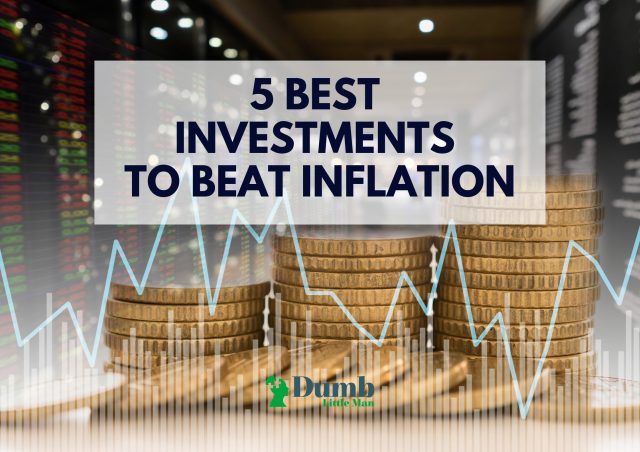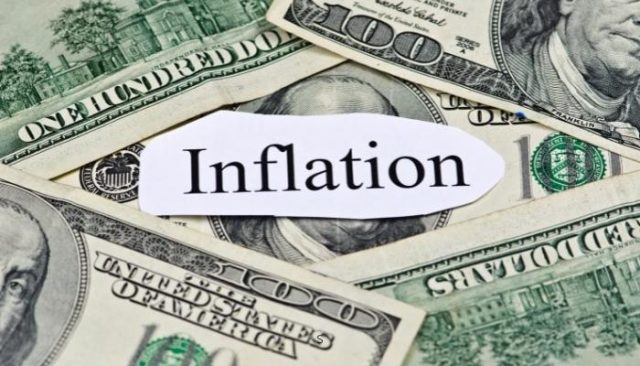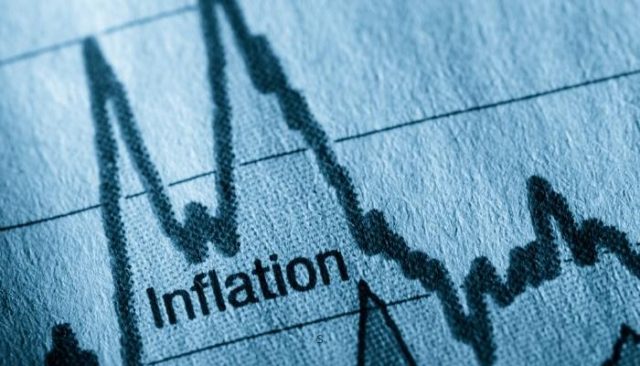5 Best Investments To Beat Inflation in 2025

The #1 Forex Trading Course is Asia Forex Mentor
Investors are becoming increasingly concerned about the effect of consumer prices on their assets.
Concerns over the fastest higher inflation rate in forty years, as well as the efforts the Reserve Bank is anticipated to undertake to battle it, have caused stocks to fall at the beginning of each year. Therefore, it would be advisable to look at your strategy and see whether incorporating some inflation protection is a brilliant idea.
As this COVID-19 epidemic began, the state injected trillions into the sector via budget deficits and boosting programs. Likewise, the Federal Reserve Bank cut rates to practically 0 and said it would maintain them there until 2023 before changing its mind.
If rising inflation persists, it will undoubtedly result in higher debt levels. Therefore most investors should think about how to structure their assets if this happens effectively. Unfortunately, despite enormous budget imbalances and cheap rates of interest, the GDP passed almost all of the 2010s, lacking robust and persistent inflation.
If you anticipate inflation to continue, it may be a great time to loan, as long as you can avoid being constantly exposed. What is the explanation behind this?
You’re essentially repaying your loan with less money if you acquire it at a reasonable interest rate. It is even greater if you use certain forms of credit to buy commodities, including real estate assets investments that are anticipated to rise over time.
5 Best Investments to Beat Inflation in 2025
#1. Real Estate Investment Trusts

Real estate seems to be a typical investment as, when inflation increases, it will become an increasingly valuable and attractive financial asset while also raising rental revenue.
Real estate could be bought directly and also via the issue of assets in a real estate investment trust (REIT) and specialist fund.
Throughout sustained high inflation throughout the 1900s, real estate investment did exceptionally well.
But, from 2007 to 2008, real estate investment is prone to higher rates of interest and economic meltdown. And raising interest rates is the standard financial policy prescription for increasing inflation.
#2. Commodities

As inflation increases, investors mostly return to physical assets which are anticipated to continue to go up.
For millennia, yellow metals— to a smaller extent, similar expensive metals—have appeared as a haven, leading to rising prices in comparison to inflation. Physical Gold could be directly obtained out of bullion and a dealer or through the purchase of a gold-managed fund or equity investment fund.
Investors may also give publicity to commodities by buying the stocks of its providers explicitly or implicitly via the exchange-traded funds or a specialized mutual fund.
Raw minerals like oil, copper, wool, soybean, or juice drinks are standard a commodity. In inflated tires, commodities prices usually grow in tandem with the cost of goods coming from those resources. Increasing crude prices, for instance, raise the prices of fuel.
Experienced investors can buy commodity contracts or stocks. Exchange-traded ETFs that engage in commodities markets, on either hand, would outperform a higher commodity cost as their future plans should be rolled when they expire.
#3. Bond funds

Bond investing might look paradoxical, provided that fixed-rate borrowing is often harmed by hyperinflation. Inflationary bonds, however, have a varying rate linked to the inflation rate. Treasury Inflation-Protected Securities (TIPS), which are tied to the Price Index, is a good option in the Us’
The price of TIPS investments grows in tandem with Inflation. The baseline price will rise; however, the rate of interest paid also rises as the primary value rises as the interest costs depend on the primary price. Foreign inflation-indexed bonds, like those released by other states, are also accessible.
Inflationary bonds could be bought in a range of methods. For example, TIPS could be bought directly from the US Treasury inflation-protected securities or via a trading account. Several mutual funds or exchange-traded securities hold them too.
Try trash bonds when you have to take a risky approach. As inflation goes up, significant debt, as it’s formally termed, tends to go up as investors seek out the positive return given by this more risk by a fixed-income instrument.
4. Stock market

Stocks get an excellent hope of maintaining pace with prices, and not all shares are made similar if it pertains to it. Inflationary environment, for instance, high-dividend-paying equities like fixed treasuries.
As a result, investors must look for firms in the goods-producing category which can reflect higher prices to customers.
5. Loans or debt obligation

Leveraged loans also can be utilized as a hedge against inflation. These are indeed floating-rate products, which means that bankers or even other creditors can enhance the rate of interest paid to complement inflation.
Accordingly, collateralized debt obligations (CDOs) and Mortgage-backed securities (MBS) are regulated pooling of loans and personal loans. Clients don’t own the loans directly but instead invest in securities with debts as the stock funds.
CDOs, MBSs, and unsecured loans are complex, dangerous (based on their grade) securities that usually require considerable minimum inputs. The most applicable approach for most ordinary clients is to buy a diversified portfolio or exchange-traded fund (ETF) specializing in such items that generate income.
What is Inflation

Inflation is defined as a rise in the price of goods through an economic cycle.
Inflation of less than 2.3 percent is regarded as modest. It’s considered light from 2.3 percent and 3.3 percent; by between 3.3 percent and 4.9 percent, it’s deemed severe. Inflation rates of more than 4.9 percent are regarded as highly high.
Inflation isn’t always a terrible thing. Analysts like a slow, consistent spike in costs because it indicates a booming economy: businesses are creating, customers’ purchasing power is strong, and jobs and earnings are increasing.
The Benefits and Drawbacks of Investing During Inflation

There appear to be benefits and drawbacks to each type of investment hedges, just like there appear to be benefits and drawbacks to every form of fund. All of the assets mentioned above have both positive and bad features.
Investing in inflation has the significant help of saving the worth of your assets. The second explanation is you want those savings to increase. Third, this can contribute to diversification; that’s always a great idea.
Finally, a tried-and-tested portfolio design strategy that helps for inflation-fighting or asset-growth approaches is spreading the risk over a diverse group of assets.
Alternatively, the inflationary environment tail must never lead the investment dog. Don’t prevent your investment plan’s defined goals or timelines when you have one. If your project demands immense investment appreciation, for instance, don’t put much pressure on TIPS.
Furthermore, don’t purchase lengthy development stocks when you need retirement savings or retirement plans for the future. Inflationary fixation must never push you against your acceptable risk personal circumstances.
There has been no guarantee in the world. Conventional bonds inflation hedging does not often operate, and unusual financial situations can often favor unexpected commodities while dumping what seem to be obvious victors in the rubble.
Despite widespread concerns about increasing inflation, there seem to be strategies to protect your savings. Owning even one of these types of assets provides a number of advantages, such as the ability to safeguard long-term purchasing power.
In addition, you and your investing expert can change your investment objectives to account for price based on the scale of inflation.
Featured Investing Broker of 2025
| Broker | Best For | More Details |
|---|---|---|
 | Advanced Non US Traders Read Review | securely through Avatrade website |
 | Intermediate Non-US Traders Read Review | securely through FXCC website |
Overall Broker | securely through Forex.com website | |
 | Professional Forex Traders Read Review | securely through Interactive Brokers website |
| Broker | Best For | More Details |
|---|---|---|
 | Advanced Traders Read Review | securely through Tradestation website |
 | Intuitive Platforms Read Review | securely through Tradier website |
 | Powerful Services at a Low Cost | securely through Tradezero website |
 | Professional Forex Traders Read Review | securely through Interactive Brokers website |
Best Forex Training Course

To begin investing in any financial product, you must have some form of capital. One of the proven methods of raising capital and improving your personal finance is by learning a skill such as forex or CFD trading. The ‘one core program’ is the best forex training course available today. It is a comprehensive training program available on the Asia Forex mentor’s website. The course is packaged by Ezekiel Chew; the popular forex trainer and trader.
The training course teaches proprietary strategies developed by Ezekiel Chew from his research, training, and trading experience for over 20 years. He insists that the training package contains the same curriculum he uses to teach forex managers, bank traders, and pro traders. His students that successfully applied these strategies made 6 figures in profits per trade.
The trading strategies are backed by mathematical probability and highly effective in winning trades. No matter your level of knowledge or trading experience, the one core program is capable of turning you into a professional trader. The course is delivered online and it comprises video lessons that you can follow at your own pace.
| RECOMMENDED TRADING COURSE | REVIEW | VISIT |
|---|---|---|
 | #1 Forex, Crypto and Stocks trading course. Ranked most comprehensive by Investopedia and Best by Benzinga. Free to Try! |  |
Conclusion: Best Investments to beat Inflation

Inflation is currently a significant source of anxiety for shareholders, and it is unclear if high rising prices will endure or subside when the Fed begins to increase interest rates.
Nevertheless, people should consider making specific financial decisions now, like converting a home into a set price at relatively low levels or paying off debt variable-rate loan balances. Those are easy, low-cost strategies that can assist you in gaining even if more significant inflation isn’t sustained.
When they own specific equities, investors might assess whichever of their investments are most vulnerable to hyperinflation and consider reducing their risk or not contributing to the portfolio at all.
Best Investments to beat Inflation FAQs
What is the best investment to beat inflation?
Inflation isn’t always a bad thing for everybody. As principal value rise, some firms function best. For example, when interest rates increase, banks typically make more money because they may benefit from a more significant margin between what the consumer demand and what they give out for savings.
Throughout inflationary pressures, companies with modest or low capital requirements and the potential to increase rates are frequently the best placed. These companies can keep and grow their profits without reinvesting money at ever-increasing rates.
However, For Indians, gold has always been a popular investment opportunity. It also acts as a barrier to hyperinflation. Moreover, gold mining companies have consistently increased in value in difficult times; the gold price surged in Covid-19, making it an ideal financial asset.
What investment will benefit from inflation?
Inflation has the most significant impact on the price of fixed-rate treasury bills since it devalues both interest installments and repayment of principal. Therefore, when correcting hyperinflation, lenders lose money if the annual rate of inflation surpasses the lending rate.
That’s why traders sometimes look at the actual cost of borrowing, calculated by deducting the interest rate from the inflation.
Longer-term fixed-rate indebtedness is more susceptible to hyperinflation than short-term fixed-rate debt since the impact of an increase on the cashflows repayments is proportionally more significant and accumulates across time.
The investments that do effectively with hyperinflation are guaranteed to generate more revenue or improve in value when inflation rises. A property that is susceptible to frequent hikes in rent is one example.













